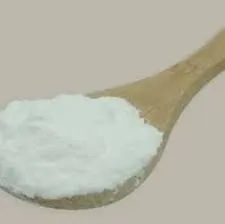Understanding the Chemicals Used in Chilled Water Systems
Effective cooling systems are essential in a variety of settings, from residential homes to large commercial buildings and industrial facilities. One prevalent method of cooling is the use of chilled water systems. These systems leverage the principles of thermodynamics to cool environments efficiently. However, the efficacy of these systems often relies on the specific chemicals used within that cooling process.
What is Chilled Water?
Chilled water refers to water that has been cooled to a temperature typically between 40°F and 45°F (4°C to 7°C) and is circulated through a network of pipes. This chilled water absorbs heat from the environments it is designed to cool, subsequently becoming warmer. It is an integral part of air conditioning systems, refrigeration processes, and industrial applications.
Primary Chemical Water
At the core of any chilled water system is simply water (H₂O). Water is an excellent heat transfer medium, partly due to its high specific heat capacity, which allows it to absorb and hold large amounts of heat without significant changes in its temperature. The use of water not only contributes to efficient cooling but also to energy savings and environmental sustainability.
Additives and Chemicals
While water is the main component, various chemicals and additives may be introduced to improve system performance, prevent corrosion, inhibit the growth of microorganisms, and enhance heat transfer efficiency
. Here are some common chemicals used in chilled water systems1. Glycol
One of the most widely used chemicals in chilled water systems is ethylene glycol or propylene glycol, collectively referred to as glycol. Glycol is often mixed with water to form a solution that lowers the freezing point, allowing chilled water systems to operate effectively even in colder climates. This antifreeze capability prevents the system from freezing up and causing damage.
what chemical is used in chilled water

2. Corrosion Inhibitors
Chilled water systems, particularly those made from metals, can be susceptible to corrosion. As water circulates through the system, it can interact with metal surfaces, leading to the formation of rust and scale. To combat this, corrosion inhibitors are added to the chilled water. Common inhibitors include phosphates, nitrites, and silicates. These chemicals form a protective barrier on the metal surfaces, significantly prolonging the life of the system.
3. Biocides
Microbial growth can be a significant problem in chilled water systems, leading to fouling, reduced efficiency, and potential health risks. Biocides are chemicals that prevent or eliminate the growth of microorganisms within the system. Common biocides used include chlorine, bromine, and various non-oxidizing agents. Their application helps maintain water quality, ensuring efficient operation and safety.
4. Scale Inhibitors
Another issue that can arise in chilled water systems is the formation of scale, which is often caused by minerals dissolved in water, such as calcium and magnesium. Scale build-up can obstruct flow within pipes and reduce the efficiency of heat exchangers. Scale inhibitors, such as polyphosphates, are often introduced to the chilled water to minimize scaling and maintain optimal system performance.
Monitoring and Maintenance
To ensure that the chemicals in a chilled water system are functioning effectively, regular monitoring and maintenance are crucial. System operators often check pH levels, conductivity, and the concentration of inhibitors and biocides. By maintaining appropriate chemical levels, the system can function efficiently, remain energy-efficient, and avoid costly repairs.
Conclusion
In summary, while water is the primary component of chilled water systems, the addition of various chemicals plays a critical role in enhancing performance, preventing corrosion, inhibiting microbial growth, and reducing scale formation. Understanding these chemicals and their mechanical roles can empower operators to maintain chilled water systems more effectively, ensuring that they deliver optimal cooling performance. As technology advances, future chilled water systems may incorporate even more sophisticated chemicals and methods to further improve efficiency and sustainability in cooling practices.

